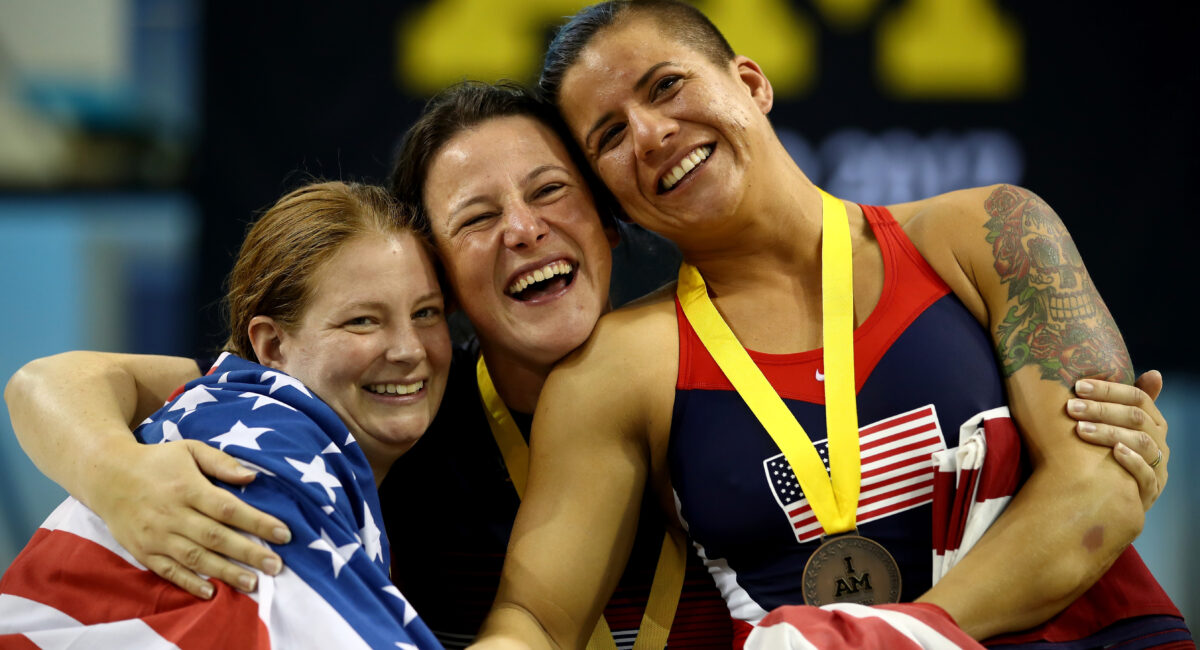Sport is widely recognised as not simply a recreational or competitive activity but as a profound vehicle for recovery and rehabilitation. For many veterans and service personnel facing visible and invisible injuries, it can form a bridge from trauma toward recovery. The programmes offered by the Invictus Games Foundation and examples from our community of competitors, offers powerful examples of how sport supports physical, mental, and social health.
Sport’s role in physical health is more obviously identifiable as a crucial element of our work for those with physical injuries.
Rehabilitation and physical strength: Many of our international community have faced limb loss, chronic pain, or loss of mobility post injury. Participation in adaptive sports, whether that’s swimming, rowing, wheelchair basketball, or sitting volleyball, or casual physical activity, such as walking or running, helps regain strength, flexibility, physical confidence, and reduces the physical consequences of injury.
Pain management and physical wellbeing: Movement helps in managing pain, increasing endurance, and improving cardiovascular health. Even where full recovery isn’t possible, sport often allows people to reclaim some control over their bodies.
Functional gains: Beyond competitive sport, many stories speak of everyday improvements, being more able to move, travel, or perform daily tasks with their children or loved ones. These gains feed into mental wellbeing too.
Sport’s role in mental health is where some of the most powerful transformations happen.
Purpose, goal-setting and hope: When our competitors or community members train for an event, it provides direction, a goal, and something to aim for. This counters potential feelings of aimlessness or despair that can come after injury or illness. In our Beyond the Finish Line research, adaptive sport was found to increase confidence and reduce symptoms of anxiety and depression.
Overcoming invisible challenges: Many competitors speak about how sport helps them face issues affecting their mental health, such as PTSD, depression, anxiety, and deal with trauma. Often when speaking with our community, we see competitors saying that sport helped them get out of the house, break isolation, and confront the “dark places.”
Resilience and identity: Injuries (visible or invisible) often disrupt identity. Who am I now if I can’t do what I used to do? Through sport, many competitors reconstruct their identity: not as a victim of injury, but as someone who is able, capable, resilient. For example, Stef Reid MBE, a former Paralympian, spoke in one of our IGF Conversations discussing how sport acted as a catalyst to confront the challenges of her life-changing injury. “Sport is so amazing, because it is one area of your life where it’s clear, and there are rules, and you can practice how you want to be in real life”.
Mental fitness, distraction, and mind-body connection: Physical exertion often offers mental relief as stress, or anxiety, or feelings of anger can be in effect “sweated out.” Setting fitness goals, establishing a routine, all help structure life in times of chaos or mental distress.
Sport’s role in social health completes the picture, as many of the deeper benefits come from the social connections it facilitates.
Connection, belonging and community: Our community often describes how they lost camaraderie when leaving service, and how sport helps restore connections to others who understand, who have been through similar things. Belonging to a team, sharing training, travelling together all build bonds.
Support networks, mutual understanding: The community allows WIS to share their struggles openly without fear of stigma. Hearing others’ stories encourages people to accept their own injury and its effects, to seek help, to find “this is not just me.”
Social role and identity: For many, being a member of a team or part of the adaptive sport scene gives back a sense of purpose, providing opportunities to take responsibility, or feel represented. They can be role models, advocates, supporters for others. That in turn supports self-esteem and promotes continued opportunities for service beyond Service.
So what makes Sport work as a mental health tool?
Providing purpose & structure: Setting goals, having training schedules, competitions all give direction.
Providing a sense of belonging & community: Being part of something larger, among other WIS or Veterans who “get it,” builds belonging.
Providing visible progress & agency: Seeing improvements in physical ability or mental state, having control over training, adapting to setbacks.
Safe environment & acceptance: Allowing our community members to share vulnerabilities, normalising mental health issues, having supportive peers and leaders.
Sport is far more than exercise or competition. For many participants in the Invictus Games, adaptive sports represent a lifeline. They help rebuild physical strength, restore confidence, connect people, and offer purpose. While sport alone may not be a cure-all, combined with support, it is a powerful tool in helping to repair mind, body, and spirit.
